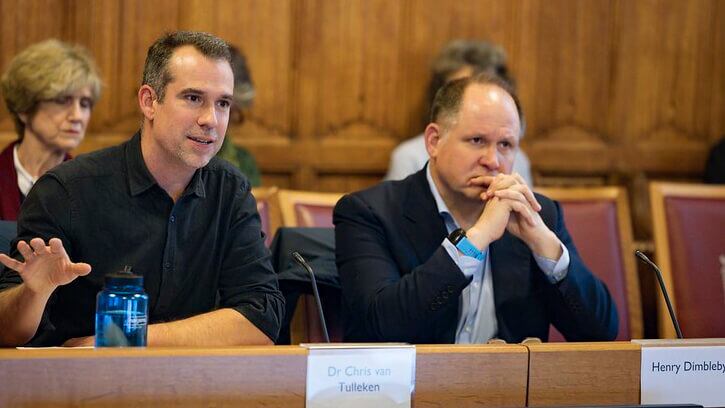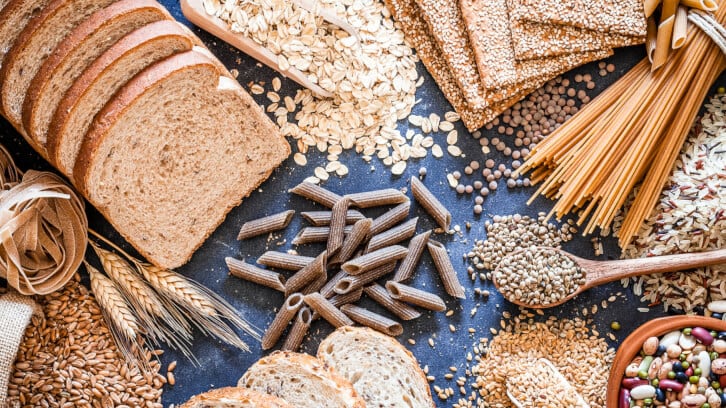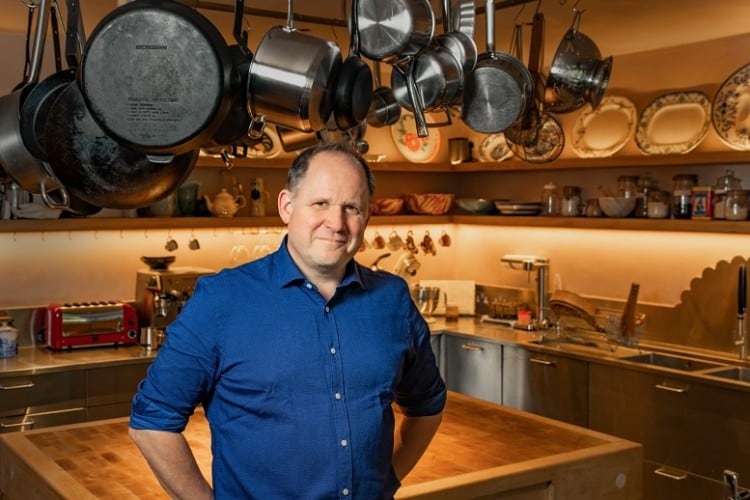Speaking earlier today (22 February 2024), as the committee continued its enquiries into healthy diets, ‘ultra processed foods’ (UPF) and HFSS, the duo expressed concerns over the way food companies currently operate and suggested that many CEOs have their hands tied.
Craving ultra processed
Dimbleby explained that our appetites developed in a time of ‘calorie scarceness’ which means we feel rewarded when we eat calorie dense foods, particularly if they have certain ratios of fat to sugar to salt.
The problem is that these do not satisfy us properly and when coupled with other characteristics such as softness and a lack of soluble fibre and water, they become especially ‘addictive’.
Addressing the committee, Dimbleby said: “Food companies, not actually because they started out evil, but they noticed that was where the money was to be made, have – over time – invested more and more of their resources into developing and marketing those products.”
These foods have nearly dominated our diet in the UK, with the British Heart Foundation stating that: 'More than half of the energy (calories) an average person in the UK eats and drinks comes from ultra-processed foods.'
As Dimbleby highlighted in his address, we spend £2.2bn on fresh fruit a year compared to £3.9bn a year on confectionery.
This is against research which has linked ultra processed diets to diseases such as type 2 diabetes and cardiovascular events.
“The fundamental cause of dietary health is a broken feedback loop,” he argued – i.e. the junk food cycle.
“By 2035, it’s estimated that type 2 diabetes – which is just one condition caused by diet –will cost more to treat than all cancers.”
He continued: “2.8m people are long-term sick, out of work. The treasury thinks that there are four big conditions driving that: type 2 diabetes, musculoskeletal problems, hypertension and mental health. Three of those are caused by diet and one of those – mental health – is exacerbated by diet as a co-factor.
“I don’t think it’s exaggeration to say, this will be one of the huge problems facing society. Because of that lack of productivity, it will not only make us sick as a society, but it will make us poor as well; and we are behind the curve.”
Government needs to pull the strings
Both Dimbleby and van Tulleken agreed government intervention was necessary, with the TV doctor raising concerns over the food sector’s autonomy to be able to make change.
“The companies are not in control of their business model,” Dr van Tulleken contended, as he likened today’s food marketing to that of tobacco in the 70s. “They are obliged to institution investors who hold all our pensions.
“They would like to behave in a moral way[…]but the way the system works, they have to sell harmful, addictive food because that’s how they make their money.
“The reason we published our paper was not to throw rocks at the industry, but to make the most compelling argument that we can, that they [food businesses] can’t control themselves. We need government intervention.
He added: “That intervention has to be regulatory.”
The difference between HFSS and ultra processed food
The difference between HFSS and UPFs was raised several times during the session. Currently, the latter phrase has no legal definition, and the former is measured by what was described as ‘overly complex Ofcom model’.
What seemed to be the most distinguishable factor between the two phrases, was that ultra-processed did not just mean sugar, salt and/or fat content. It was also about the way the product was made, the emulsifiers used, and even the marketing (e.g. cartoons on the font and bright lettering).
“If I was to mix, lard, sugar and butter and give it you, you wouldn’t want it,” Dr van Tulleken analogised. “There is much more to food, in order to make it palatable you have to process it.”
Taxes and octagon labels
As he gave evidence, Dimbleby shared his fear that inaction would result in the UK ‘drugging its way out of the problem’. Thereby simply moving profits from food companies to drug companies.
The two agreed that in order to fix the UK’s health crisis, that black warning labels should be applied to ultra processed foods, as areas such as Chile have already implemented.
But rather than applying the Ofcom model to HFSS and ultra-processed foods, we should rely on our pre-existing dietary recommendations.
“If we use calories, fat, salt and sugar – more than 97% of UPFs would get a warning label,” Dr van Tulleken claimed.
Dimbleby also called for a national testing programme to be rolled out, as he referenced how difficult it has been for researchers to find volunteers to conduct food-related studies around UPFs.
“This [diet-related illness] kills almost as many people as Covid in its peak death year,” he affirmed.
The former Government food tsar also called for a reformulation act for sugar and salt, but admitted such a movement would have to be done when the economy was in a better place.
He also recommended a statutory target for health, meaning food companies would need to be more transparent around what they are putting in their food. This was a suggestion published in the Dimbleby Report, which was shelved by the Tories.
He added that he remained optimistic change would happen as a result of the evidence being so substantial.
Whoever wins the election, Dimbleby said the health crisis is “too hard to ignore.”
“We don’t need to wait for more research before we act, nor do we need to believe in UPF. Almost all the doubt and uncertainty come from industry voices,” Dr van Tulleken said.
“I don’t know anyone who is completely independent [not backed by foods companies] and credible who doubts that UPF is bad for you.”
In related news, manufacturers have criticised a new report that food firms make most their money from 'unhealthy' foods.





